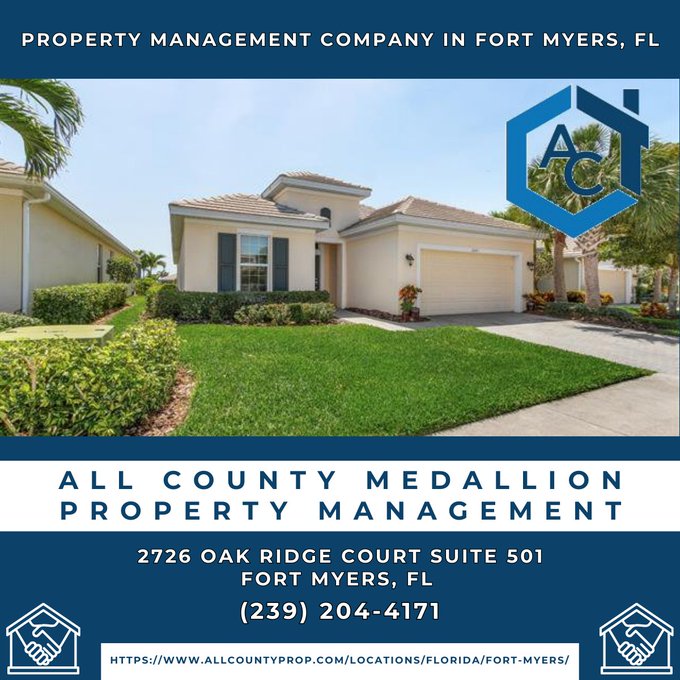Introduction
Finding a good property manager can be one of the most critical decisions a property owner can make, especially in a vibrant and competitive real estate market like Florida. Whether you're a seasoned investor or a first-time landlord, understanding how to find a good property manager is essential for maximizing your investment's potential and minimizing your stress. This article aims to provide you with all the insights and tips necessary to make an informed choice.
How to Find a Good Property Manager in Florida: Essential Tips for Success
Understanding the Role of Property Managers
Before diving into how to find a good property manager, it's vital to understand what they do. A property manager acts as the intermediary between you, the landlord, and your tenants. Their responsibilities can range from marketing your property, tenant screening, rent collection, property maintenance, to legal compliance.
Why You Need a Property Manager
Navigating the complexities of rental properties can be overwhelming. Here are some reasons why hiring a professional may be beneficial:
" width="560" height="315" frameborder="0" allowfullscreen>
" width="560" height="315" frameborder="0" allowfullscreen>
- Time Savings: Managing properties takes up significant time; a property manager allows you to focus on other priorities. Expertise: They bring industry knowledge that can help you avoid costly mistakes. Tenant Relations: A skilled property manager knows how to handle tenant issues effectively.
What Is the Average Property Management Fee in Florida?
When considering hiring a property manager, it’s crucial to understand financial implications. The average management fee in Florida typically ranges from 8% to 12% of the monthly rent collected. However, this percentage can vary based on several factors such as location and service quality.
Factors Influencing Management Fees
Property Type: Single-family homes may have different fees compared to multi-family units. Location: Urban areas often command higher fees than rural settings. Services Offered: Some companies offer full-service management while others may offer limited options. residential property managementWhat Percent Do Most Property Management Companies Take?
Most companies generally take around 10% of the monthly rent as their management fee. However, this can fluctuate based on additional services provided or any special agreements made during negotiations.
How Do I Find a Good Property Manager in Florida?
Finding a suitable property manager involves several steps:
Research Online Reviews: Websites like Yelp or Google Reviews can provide insights into customer experiences. Ask for Recommendations: Speak with fellow landlords or real estate agents who might have recommendations based on their experiences. Interview Candidates: Prepare questions regarding their experience, fees, and services offered before making your decision.Evaluating Experience and Expertise
While searching for potential managers, pay attention to their experience level:
- Years in Business Number of Properties Managed Types of Properties Managed (Residential vs Commercial)
How Much Does a Property Manager Cost in Texas?
If you're comparing markets, it's useful to know that Texas averages similar management fees—typically between 8% and 12%. However, each state has its nuances influenced by local laws and market conditions.
Key Responsibilities of Property Managers
What Is the Biggest Responsibility for Property Management?
Arguably the biggest responsibility of any property management company is ensuring tenant satisfaction while protecting the owner's investment. This balancing act requires effective communication skills and conflict resolution strategies.
Additional Responsibilities Include:
- Marketing the Property Conducting Tenant Screenings Handling Maintenance Requests Collecting Rent
What Do Most Property Managers Make?
The income of property managers varies widely based on location and experience but generally falls between $40,000 - $70,000 annually according to industry reports.
Calculating Management Fees: How Is It Done?
Management fees are typically calculated based on the monthly rent collected or through flat-rate pricing models depending on services rendered.
Example Fee Structures:
| Fee Structure | Description | |-----------------------|-------------------------------------------| | Percentage-Based | A percentage (e.g., 10%) of rent collected| | Flat Rate | A fixed monthly fee regardless of income | | Tiered Fee | Different rates based on number of units managed|
Airbnb Management: What Should You Charge?
If you're managing short-term rentals like Airbnb properties, it's common for managers to charge between 15%-30% depending on services offered—cleaning, guest communication, etc.
Profit Margins in Property Management Businesses
A good profit margin for property management companies usually hovers around 20%-30%. This margin reflects operational costs along with necessary reinvestments back into the business.
" width="560" height="315" frameborder="0" allowfullscreen>
Understanding Fees: What Is Included?
When assessing management fees, inquire about what’s included:
Marketing Costs Tenant Screening Fees Maintenance Coordination ChargesCommon Types of Management Fees Explained
Three Types of Management Fees:
- Flat Rate Fees Percentage-Based Fees Leasing Fees (charged when new tenants are placed)
FAQs about Finding a Good Property Manager
li23/ol4/li24li24/ol5li25# How much should I charge for managing an Airbnb?- Depending on services provided; usually between 15%-30%.
- Generally no sales tax applies specifically; however consult with local regulations for clarity.
- As per recent estimates, it’s valued at approximately $88 billion as of 2023!
Conclusion
In summary, finding an excellent property manager in Florida involves careful research and consideration of various factors including experience level and fee structures. By asking key questions and understanding exactly what you need from your future partner in managing your assets responsibly and effectively will lead you toward success in your real estate ventures!
Remember that this decision impacts not just your bottom line but also how smoothly your properties will run day-to-day—so take this seriously! Happy hunting!

